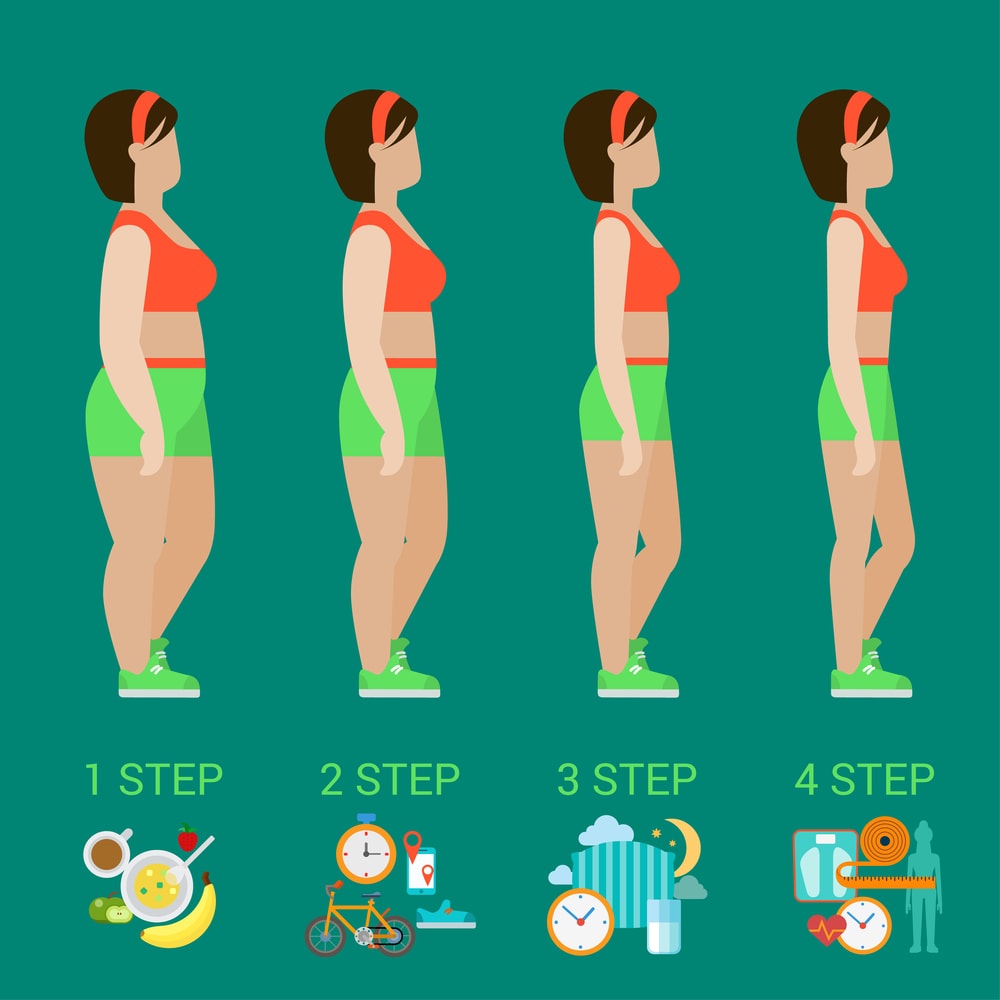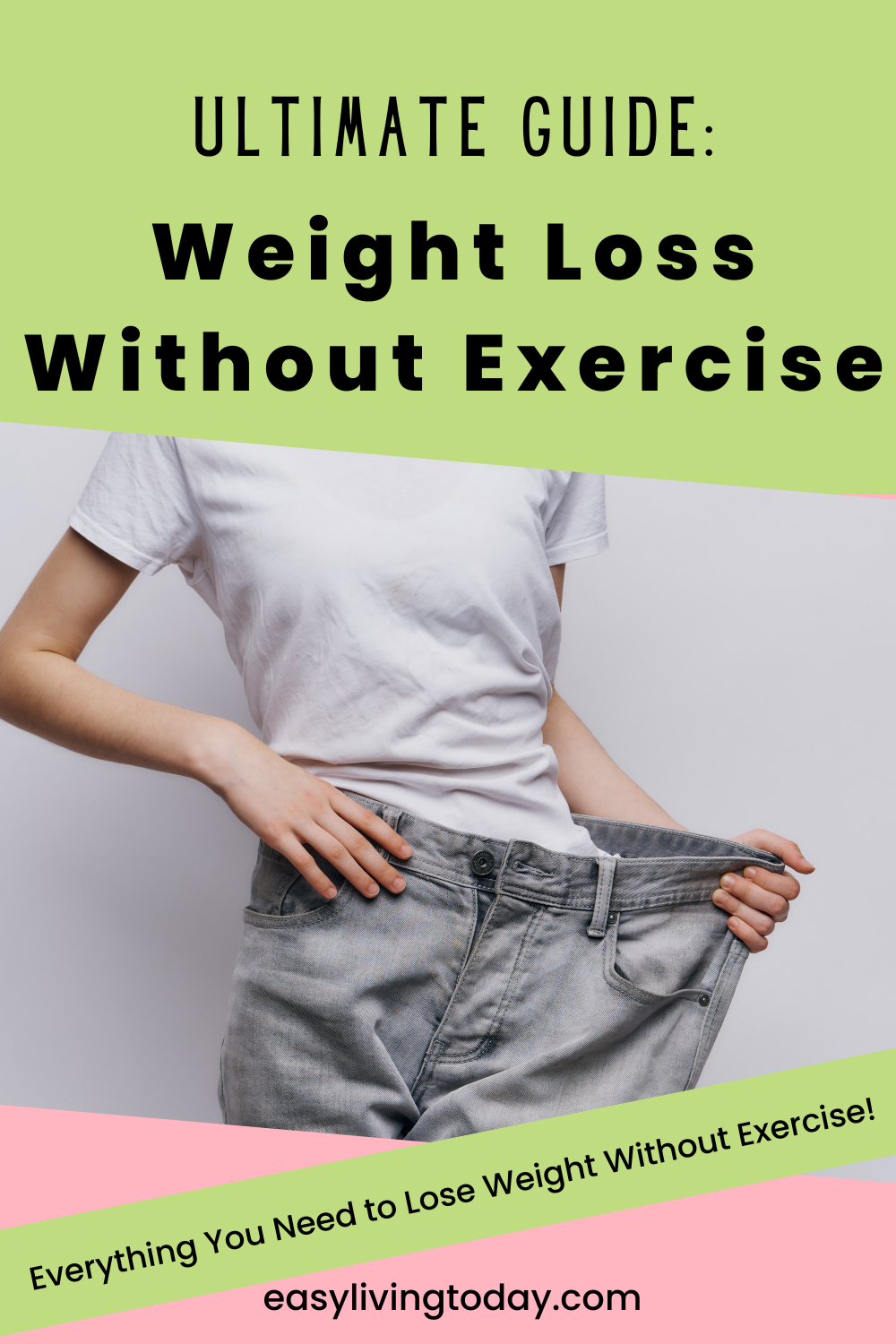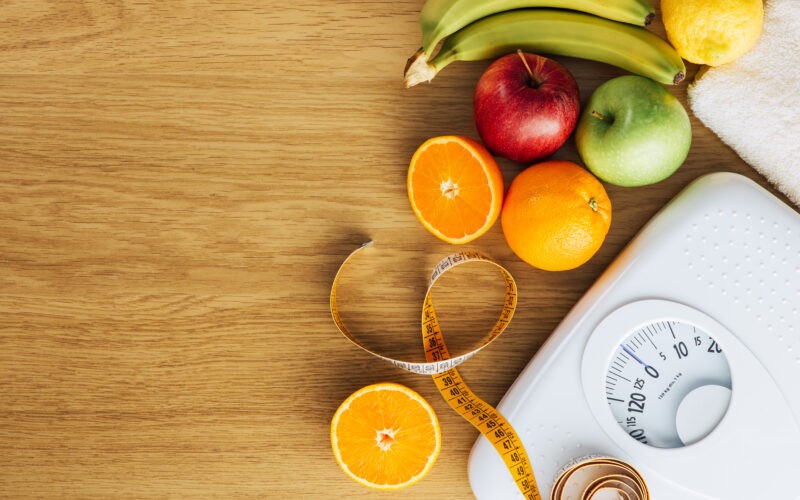Can You Lose Weight Without Exercise?
The answer to the question of whether you can lose weight without exercise is yes. While there is no getting away from the fact that physical activity and exercise are important for overall health and wellbeing, it is possible to successfully shed excess pounds without having to break a sweat.
To do so, focus on making small changes such as reducing your portion sizes, watching your calorie intake, eliminating sugary beverages, avoiding processed foods, eating more protein-rich foods like beans and legumes, choosing healthy snacks like fruits or vegetables, and increasing your water intake. These simple dietary swaps will help reduce your daily caloric intake which leads to fat loss over time. A calorie deficit is key to successful weight loss, whether you exercise or not.
In addition to diet modifications, other non-exercise activities such as mindfulness meditation or taking a leisurely walk can also aid in weight loss. Studies have shown that these activities can help increase motivation and adherence to a healthy lifestyle.
Being active is still essential for overall health, but it is possible to lose weight without exercise when combined with meaningful dietary changes. Making small, sustainable tweaks to your diet and lifestyle can help you reach your healthy weight loss goals without having to hit the gym.
Ultimate Guide to Losing Weight Without Exercise
You Must Have a Healthy Diet
Diet is actually the most important factor in a weight loss journey. Eating habits are a key component of any successful weight-loss plan. Again, a caloric deficit is a must for weight loss. Here are some tips for developing healthy eating habits that will help you lose weight without exercise:
1. Eat plenty of fruits and vegetables – Fruits and vegetables provide essential vitamins and minerals that your body needs for energy and health. Make sure to have at least five servings each day, including one serving from the dark green leafy group such as kale or spinach. Not only is fruit a great healthy snack, but ensuring you hit your fruit & veggie servings will also help ensure you are getting enough dietary fiber.
2. Cut back on added sugars – Added sugars should make up no more than 10% of your daily caloric intake. This includes sugar found in sodas, cookies, and other processed foods. Replace these with healthier options like fresh fruit or yogurt. Replacing these unhealthy foods alone will ensure you are consuming fewer calories.
3. Reduce your portion size – Portion control is extremely important. If you struggle with this, try using smaller plates or even portion control plates. Eating smaller portions can help you eat less calories and prevent overeating.
Portion Control Nutritional Plates BNYD Portion Control Lunch Travel Plate
BNYD Portion Control Lunch Travel Plate Portion Control Containers
Portion Control Containers
4. Increase fiber intake – Fiber helps to fill you up faster and keeps you feeling full for longer. Make sure to include fiber-rich foods such as whole grains, beans, legumes, fruits, and vegetables in your diet each day.
5. Drink plenty of water – Staying hydrated is important for overall health and weight loss goals. Aim for 8 glasses of water each day to keep your body nourished and energized. When you wake up, start off with a glass of water. If you’re bad at tracking your water intake, just fill this water bottle every day and make sure you drink it all and there you go.
6. Eat healthy fats- Healthy fats are essential for weight loss because they provide us with energy and help keep us feeling full. They also play an important role in helping us absorb nutrients from the foods we eat. Healthy fats such as avocados, olive oil, nuts, and seeds are a great way to get the healthy fats your body needs.
7. Practice mindful eating– Mindful eating is a practice that encourages you to pay close attention to your physical and emotional experiences while consuming food. It involves being aware of one’s physical hunger and fullness cues, as well as being aware of the flavors, textures, and smells of food. Through mindful eating, individuals can develop a healthier relationship with food. When practiced regularly, mindful eating can lead to better digestion, decreased emotional eating, and improved nutrition.
8. Avoid junk food as much as you can until you with your goal. There are too many extra calories that lead to extra weight. Instead, go for whole foods.
The Best Foods for Weight Loss

Making healthy food choices is an important part of weight loss and maintaining a healthy lifestyle. Eating nutrient-dense foods can help you to reach your weight loss goals without feeling deprived or hungry all the time. It’s best to avoid fad diets that are hard to maintain long term. Foods that are high in fiber, protein, and healthy fats are typically some of the best for weight loss, as they keep you feeling fuller for longer.
Here is a list of some of the best foods for weight loss:
- Lean protein sources such as fish, eggs, chicken breast, lean meat and beans. Protein helps to build muscle mass while keeping you fuller for longer – meaning you’ll be less likely to snack on unhealthy options later in the day. It’s a good idea to aim for 1.5 grams of protein per pound of your goal body weight. A high-protein diet will not only keep you full, but help you keep your muscle mass.
- Fatty fish like salmon and tuna are also great sources of healthy fats. These fats help to reduce inflammation and can even increase your metabolism – perfect for weight loss.
- Fruits, especially high-fiber varieties like apples, pears, and berries. Fiber helps to slow digestion and keeps you feeling full until your next meal.
- Whole grains such as oats, quinoa, brown rice, and bulgur are all great sources of complex carbs. These foods provide energy but don’t cause blood sugar spikes like refined carbs do.
- Vegetables such as broccoli, spinach, cauliflower, Brussels sprouts, and kale are packed with minerals and vitamins that promote weight loss.
- Legumes such as lentils, black beans, kidney beans, and chickpeas are high in fiber and protein, making them a great option for weight loss.
By focusing on nutrient-dense foods like those listed above, you can reduce your calorie intake while still feeling full. Be sure to speak with a health professional before beginning any diet or exercise program.
The Importance of Sleep for Weight Loss
Getting enough sleep is paramount for anyone trying to lose weight. Recent research has consistently shown that getting a proper amount of restful sleep can drastically help in reducing your appetite and cravings while decreasing stress levels.
When we don’t get enough sleep, our bodies produce higher levels of ghrelin – the hunger hormone – which triggers the desire to eat more and our levels of leptin – the hormone that signals fullness and satisfaction – drop significantly. This means that even if you are eating healthy meals, your body will still be telling you to eat more than necessary. And that increase in food intake leads to weight gain.
Additionally, stress hormones like cortisol increase with lack of sleep. When elevated, these hormones cause us to store more fat and also increases cravings for unhealthy, sugary foods.
Getting the right amount of sleep can also help improve energy levels throughout the day. When our bodies are well-rested and recharged, we are more likely to make healthy choices and have a positive outlook on life.
Ultimately, getting enough quality sleep is essential for people trying to lose weight – it regulates hormones, helps keep your energy up, and curbs cravings for unhealthy foods. So make sure you set a time to go to bed each night and stick with it!
Going to bed early and getting the right amount of sleep is one of the best things you can do for your health, as well as achieving your weight loss goals.
Good Daily Routine for Weight Loss

Creating a daily routine that supports weight loss can seem daunting, but it doesn’t have to be! Here are some tips for structuring a healthy and sustainable daily routine:
Start your day off right. A good way to jumpstart your morning is with a glass of water and walking around the block. This will help give you the energy and motivation to tackle the rest of your day. Additionally, eating a nutritious breakfast is essential for providing energy and focus throughout the day.
Make time for healthy snacks. Snacking can be an enjoyable part of your daily routine if you choose healthy options like fruits, nuts, yogurt, or vegetables. This will help to keep your energy levels up and is the best way to prevent overeating in the long run.
Schedule in mental breaks. Be sure to include activities that are relaxing and enjoyable in your daily routine, such as reading a book, engaging in a creative activity, or spending time with friends and family. Taking regular breaks from work can help relieve stress and give you the opportunity to focus on the positive aspects of your life.
Create an evening routine to wind down. After a long day, you’ll want to relax and unwind. A great way to do this is by creating a nightly routine that includes activities like stretching, meditating, or listening to music. These activities can help reduce stress and prepare you for a good night’s sleep, which is important for weight loss and your mental health.
By creating and following a daily routine that incorporates some physical activity, healthy eating, mental breaks, and relaxation time can help you stick to your weight loss goals and maintain a balanced lifestyle. With the right plan in place, you can make progress towards your goals each day!
Remember that everyone’s daily routine looks different. There is no one-size-fits-all approach to losing weight, so take the time to experiment and find what works best for you. Good luck!
Note: This content is for informational purposes only and does not constitute medical advice. Please consult your physician before beginning any diet or exercise program. Thank you.
Pin It for Later:






